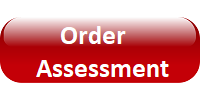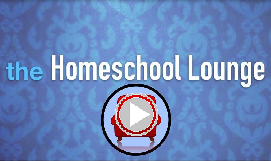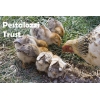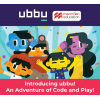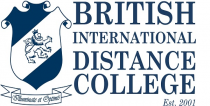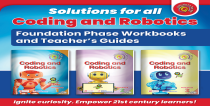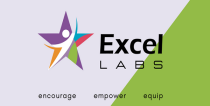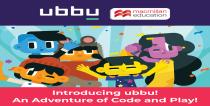Assessment

Homeschoolers make use of a variety of formal and informal educational assessment tools aligned with their child's individual needs.
How will parents know what their children have learned?
A parent who starts off with homeschooling often asks these questions, how will I know what my children have learned, what they can do, what to teach them next, and what about tests and exams?
Assessments are often equated with tests and exams, but the term assessment refers to a wide variety of methods or tools that parents and educators use to evaluate learning progress.
What assessment tools do homeschoolers use?
For the homeschool parent observation and conversation is key in knowing what their children have learned. The content and skills that parents would like their children to know and apply differ hugely within families. These goals are realized with the use of a variety of homeschool approaches. Parents thus make use of a variety of informal and formal assessment tools to evaluate progress. They also choose the timing of the assessment that will be the best fit for the individual child.
Informal tools:
- Observation
- Narration
- Discussions
- Informal questioning /quizzes
- Projects
- Journals
- Checklists and anecdotal records (especially for young homeschoolers)
Formal tools:
- Assignments
- Past exam papers
- Exams and tests from formal curriculum providers
- Standardized tests
- Questionnaires
- Portfolios
- Evaluators (teachers, psychologists, etc)
Most of these informal and formal tools are being applied at home.
Some formal tools like standardized tests and external evaluators require the involvement of a third party.
Dr. Holman, a psychologist who offers assessment services to independent schools now offers remote assessments to homeschool parents through the sahomeschoolers.org website.
Remote assessments available: (English and Afrikaans)
Independent tests and other assessment products provided by Dr. Holman:
CAPS aligned curriculum checks (gr 1 - 9) that help parents benchmark homeschool learners' progress against the CAPS national curriculum. These tests are not intended to be an in-depth test of knowledge and abilities, as would be found in end-of-year exams. Rather, they “skip lightly” over the curriculum, identifying whether the most important aspects have been dealt with.
Curriculum independent Academic Abilities Assessment (gr 1 - 12). Thinking abilities like reasoning, grouping information, etc, and the ability to handle information in number, words, and symbol form are being assessed and compared with what most people score. Suggestions are given on how to improve academic abilities.
Subject choice assessment in grade 9. Academic abilities, career interests, and personality are being assessed to make suggestions for careers and subjects aligned with career choices.
Career choice assessment for school leavers. Academic abilities, current career interest, hidden career interest, and career personality are being assessed and career options are suggested.
Click here for the complete list of assessments available.
Why do parents use REMOTE assessment tools?
There are homeschool parents who feel more confident if they can occasionally use an objective assessment tool that confirms their own informal assessments. If these assessments are available remotely they have certain benefits to parents.
- It is an objective form of assessment done at home.
- Standardized tests are mostly recognized by academic institutions. It can also grade children according to their knowledge and skills.
- A formal assessment can help to resolve disputes about whether children are learning or not. (divorce, foster care, etc)
- There is parental oversight as assessments are administered at home under parental supervision.
- A positive, relaxed test environment creates better and more accurate results.
- Cheaper and quick to administer
- Children can practice test-taking skills in a supportive environment.
- It does do not infringe on the right to privacy.
What do these tools measure?
There are a diverse array of assessment tools that measure different aspects of learning. Subjects like language arts, mathematics, science, and social science are usually included in the measurement of knowledge and skills. Parents can choose the tools that give them an indication of some of the following aspects:
- If relevant skills are being developed
- If the minimum CAPS curriculum standards are being maintained
- If decisions affecting future careers are correct
- Child's strengths, weaknesses, possible gaps, and learning challenges
- Benchmarking. Compare the child's test results to other children
- Academic readiness (school readiness)
How does remote assessment work?
Parents place an order and make a payment for assessments on the SAHomeschoolers.Org shopping cart. (Click here) On receipt of their order and payment, the relevant test material will be sent to them via email by Dr. Holman. The material will consist of supervisors' instructions (including any questions to be read out) the tests and an answer sheet/worksheet. Answers are being recorded on the answer/worksheet which is emailed to Dr. Holman for processing and interpretation. A report will be sent to parents within a week. Parents are welcome to contact Dr. Holman to discuss the report if they wish.
Can these assessments be trusted?
These remote assessments have been developed by Dr. Louise Holman from the Holman Institute for Educational and Psychological Evaluation and Research. She is an Industrial Psychologist specializing in educational assessment and the interface between school and the working world. She has developed this objective, independent assessments for parents to guide them in developing their child's full potential.
Hundreds of schools around the country use her various products, including the Culture Fair Abilities and Motivation assessments (CFAM), National Curriculum Linked Assessments, subject choice, and career choice assessments based on her Field, Environment, Duty classification of work, (with associated interest and personality tests in her latest book “WORK Book – Choosing a career you will like”).
General comments.
It is important that parents keep assessment in perspective. Assessments are just tools and should be used in addition to other information the parent already has gained on the child's learning through observation and conversation. It is there for support and guidance on their homeschool journey.
Parents and their children can feel some pressure to do well on these tests. But, parents are encouraged to hold the scores loosely and remember that these are simply a snapshot of a child on a given (good or bad) day.
Please note: These assessments are confidential and will not be shared with third parties.
Events
Legal & Research
Centres
Homeschool ABC
Support
Curriculums
British International Distance ...
We offer children in South Africa the opportunity to begin their ...
Learn, code and create with Ubbu
Introducing ubbu!An Adventure of Code and Play! Learn, Code ...
Has no content to show!

